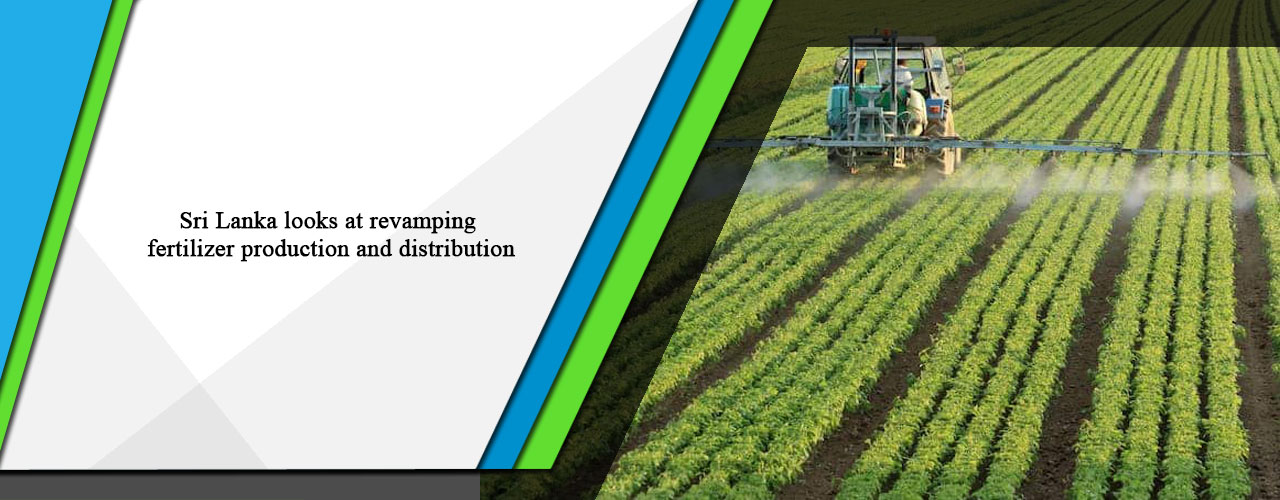Sri Lanka looks at revamping fertilizer production and distribution
Sri Lanka’s Cabinet of Ministers has reportedly approved a proposal to formulate a new centralised methodology with support from key IT and nanotechnology bodies of the government of Sri Lanka with the aim of providing a major tech facelift to the country’s fertiliser production and supply.
The Cabinet proposal was presented by Sri Lanka’s Agriculture Minister Mahindananda Aluthgamage and it is aimed at ensuring production, supply and use of fertiliser is done on a scientific basis in order to maintain sustainable soil conditions to produce quality crops.
The Cabinet paper has reportedly stated that a proper fertiliser supply chain management process with appropriate technical procedures that do not lead to fertiliser wastage, scarcity and deviation from standards should be followed.
According to local media reports, the Cabinet of Ministers has approved the proposal in order to take the initiative to provide infrastructure to set up a centralised methodology with support from the Information and Communication Technology Agency (ICTA).
The methodology will include completion of a National Fertiliser Secretariat with modern technology, improving existing laboratories and strengthening the district level operating and evaluation system including a field inspection mechanism to be established in collaboration with the Sri Lanka Institute of Nanotechnology, the Daily FT has reported.
The government of Sri Lanka annually spends about Rs. 35 billion on the fertiliser subsidy and an audit report released in February 2020 had found that much of the fertiliser was overused, leading to serious wastage and health problems.
The Auditor General (AG) has reportedly recommended that immediate steps be taken to implement the decision of the Fertiliser Advisory Committee of the Ministry of Agriculture in July 2019 to encourage farmers to use Single Super Phosphate (SSP) manufactured using Eppawala rock phosphate which can be substituted for Triple Super Phosphate (TSP) as this decision had not been complied with even by November 2019.
“It has been identified that the use of these imported fertilisers had resulted in the outbreak of several diseases, whereas action had not been taken to manufacture fertiliser using phosphate with the least amount of cadmium and arsenic and to limit fertiliser importation,” the Auditor General’s report has said.
OSL take:
Sri Lanka’s agriculture sector is fast becoming a hotspot for foreign business/investment opportunities. The government of Sri Lanka is committed to developing the country’s agriculture sector by introducing sustainable development programmes as well as machinisation and upgrading the fertiliser production. Given the Sri Lankan government’s to revamp the country’s fertiliser manufacturing process, foreign businesses/investors could explore business opportunities in Sri Lanka’s agriculture sector.
| Article Code : | VBS/AT/12112020/Z_7 |

